
Stories of daring, stories of technological feats, stories of prevailing against the odds ... these are the stories we tell at the National Air and Space Museum. Dive in to the stories below to discover, learn, and be inspired.
Showing 141 - 150 of 176
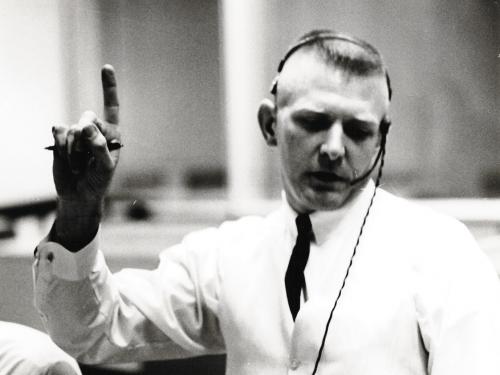
August 27, 2015
Gene Kranz is best known for his stellar performance as flight director for the ill-fated Apollo 13 mission. But Kranz is also known for another thing: his white vests. Kranz’s vests had legendary status around mission control, and also in the minds of the public after actor Ed Harris wore an exact replica of Kranz’s most famous vest in the 1995 movie, Apollo 13. Kranz’s vests represented the strong and can-do approach that pervaded his mission control team, especially during the Apollo 13 mission in which the astronauts’ lives were at stake.

August 16, 2015
There's more to these suits than meets the eye.
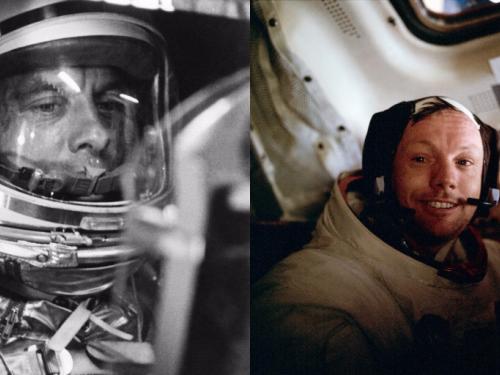
August 12, 2015
We’ve received a few comments and questions about why our stretch goal for the Neil Armstrong #RebootTheSuit Kickstarter project is Alan Shepard’s Mercury Freedom 7 spacesuit. The short answer is that the two suits bracket the ideas and accomplishments of the Apollo space program.
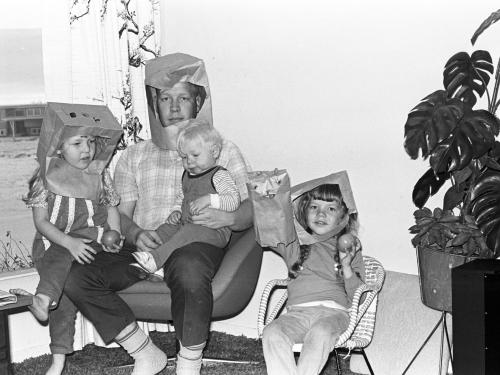
August 10, 2015
One of my earliest memories is of watching the Moon landing on TV with my dad. I was barely four years old, so the whole thing really kind of went over my head. I do remember being upset that "Mr. Dressup" had been pre-empted. Also, I was fascinated by the fact that my dad was practically climbing into the TV, he was so excited! (He was a science teacher—genes that skipped me, sadly!) I learned that day, if people could walk on the Moon, anything was possible.
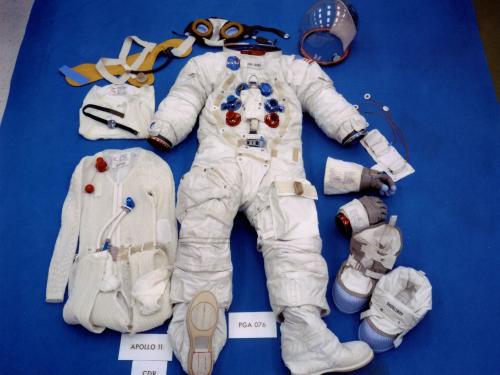
August 07, 2015
Learn how to put on an Apollo spacesuit.
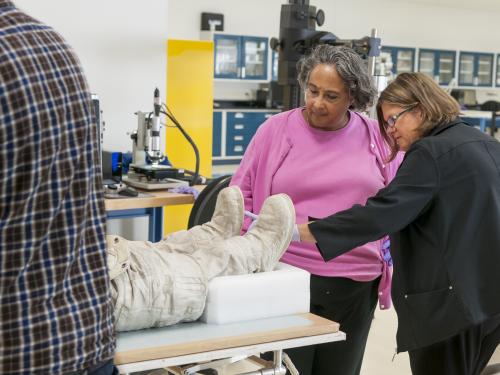
July 29, 2015
The Smithsonian’s first-ever Kickstarter campaign to conserve, digitize, and display Neil Armstrong’s Apollo 11 spacesuit was fully backed in just five days!

July 25, 2015
Much like medical triage, conservation triage analyzes the risk posed to an object and the hazards associated with not taking immediate action. Triage conservators ask questions such as: Can the object be handled safely by staff and researchers? Will the degradation of the object continue if it is not treated immediately? What treatment can we do, with the resources at hand, to keep this object stable as long as possible?

July 20, 2015
Today is a rather big day for the Museum. Not only are we celebrating the 46th anniversary of the Apollo 11 mission, but we are also celebrating the launch of something quite new.

July 08, 2015
Next week marks the 40th anniversary of an important moment in space history, when astronauts and cosmonauts greeted each other warmly in their docked Apollo and Soyuz spacecraft while orbiting above the Earth.
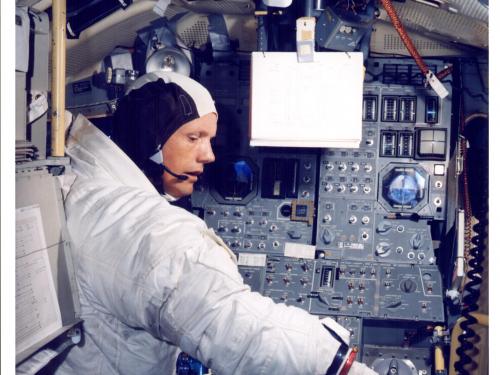
May 12, 2015
In his memoir Moon Lander, Grumman project manager Thomas Kelly describes the exhilaration at Grumman for winning the contract to build what became the Lunar Module (LM), followed by trepidation when the design team realized the severe weight restraints they had to work under in order to get two astronauts safely to the lunar surface and back to lunar orbit. At the outset, Grumman and NASA worked with an initial estimate of 30,200 pounds, which was within the limits of the Saturn V’s booster capability; but this began to grow ominously as the work progressed.